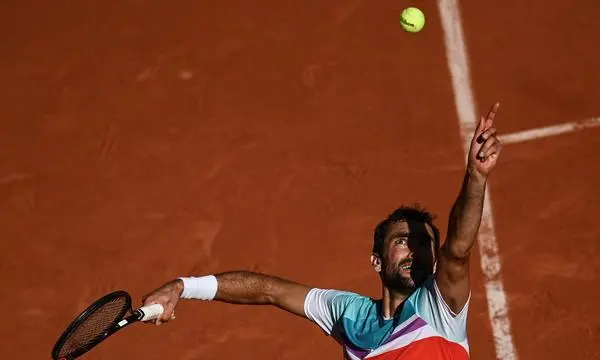How the wars end

The wars – which I will define in general terms as issues of military conflict sustained in part by the nature of the soldiers who fight and partly by the ability of a participating nation to economically support the effort – end in one of three ways: victory, commitment or mutual exhaustion.
In the Ukraine War, the military reality is that neither the invader, Russia, nor the defender, Ukraine, achieved their declared goals. Russia’s goal was to conquer Ukraine. The fact that he was able to conquer only a small part of the east led to the absurd statements that the east was all Russia wanted. If that were true, then Russia could (and probably would have) claimed victory after a year of fighting and the war ended. The truth, of course, is that Russia tried and failed to conquer the whole country.
The goal of Ukraine is to maintain all its territory. The problem is that the Ukrainian army is not strong enough to force the Russians to leave Ukraine. This implicitly means that the European nations that support Ukraine also do not have the power or willingness to expel Russia.
The reason Russia has invaded Europe is simultaneously important and debatable at this time. Moscow’s priority was to build a buffer between the Russian border and the eastern border of NATO in Poland. In a sense, the measure was motivated by absurd fear, since the NATO’s ability and desire to invade Russia were nonexistent. But capacity and intention change, and nations have to assume the worst possible scenarios. Russia was convinced that it could quickly gain a buffer in Ukraine. Another real possibility is that Russia dreamed of restoring the borders of the Soviet Union collapsing, and the invasion of Ukraine was the first step. As it failed, the rest is debatable for now.
Neither side is motivated to continue to fight or to capitulate. Commitment thus becomes the only way out. The commitment is as embarrassing to those who started war as those who resisted. It is also difficult. In any negotiation, whether it is war or business, neither party admits that it needs an agreement or is not prepared to move away. But it is vital to ignore what is said and recognize what is real: Russia could not conquer Ukraine and Ukraine has lost part of its territory. Neither can abandon the table if they are rational. Rationality, in this sense, is the recognition of reality, especially with regard to the determination of the appetite of the public and the military by war. Russia is hard to read, but it is unlikely that its military and its audience – both important for President Vladimir Putin – want three more years of bloodshed. Undoubtedly Ukraine has similar seizures.
There is another dimension in all this: the fact that other nations are interested in the outcome of war. Russia has few allies. Ukraine has many, although they have never been interested in sending soldiers to the battle. The problem of having allies is that they are interested in war, but they do not have to make the supreme sacrifice. Europe claims to fear a future in which a hostile Russia is in its borders, but is not so scared that it has built a credible defensive force or generated the martial spirit needed to wage a war. And while Russia’s performance in Ukraine shows that it is not a military power to fear, the reality is that it is relatively useless for Ukraine to have allies who want Russia to withdraw without much to force the issue.
The United States, once Ukraine’s main source of defensive weapons, now believe that there is no advantage in giving Ukraine power or supporting its war effort. This means that it is only Europeans who want to establish conditions that Russia will not comply with. Russia began the occupation of Crimea in 2014. Strategic reasons for occupation remain. Moscow will not deliver to Crimea and Europe will not go to war with Russia because of it. This is important because Moscow, in the context of peace negotiations, has required Ukraine to give in to the peninsula – that is, to transform the reality actually into a reality of Jure. This will probably be a friction point that will continue as conversations advance.
The war is not exactly finished because the fighting continues. However, unless the Russian army suddenly evolves into a more effective force, or that the United States or Europe send massive forces to expel Russia, the map lines are more or less fixed. The new borders are a reality. And everyone has to accept this reality if they want peace conversations to succeed. There are other demands that Europeans can make and that Russia will not accept – which shows that they are more honored than Americans, who only want war to end and do business with a weakened Russia – and there are other issues that can be negotiated. Some of them, such as the dimension of the Ukrainian Armed Forces, may be and will probably be ignored.
There is one last dimension to take into account. Russia is a nuclear power and, during the Cold War, Russia and the United States have taken all the precautions to avoid representing a deep threat to each other. They waged duels in the so-called Third World, but, except for Cuba’s missile crisis, never threatened to place each other in an unsustainable position for fear of a desperate nuclear response. East Ukraine and the Crime Peninsula simply do not deserve to be on the edge of the abyss, as we used to say in the Cold War.
In the 1970s, the United States negotiated endlessly with the northern Vietname about a long war they knew they couldn’t win. The US has learned from it, I think, that diplomatic pride is not worth the cost of lives. Russia cannot occupy Ukraine, Ukraine cannot force the departure of the Russians, and negotiations must recognize that. Putin will say that he does not need peace and Europe will be outraged by the fact that America admits the inadmissible – that the war is over. But all this is just a posture. Those who want war to continue unless their conditions are met are doing Bluff. The war is over, except for deaths.
Analyst, geopolitical and strategic of international affairs. Chairman
of Geopolitical Futures
© 2025 Geopolitical Futures®. Republished with permission. Translation: Gonçalo Nabeiro








